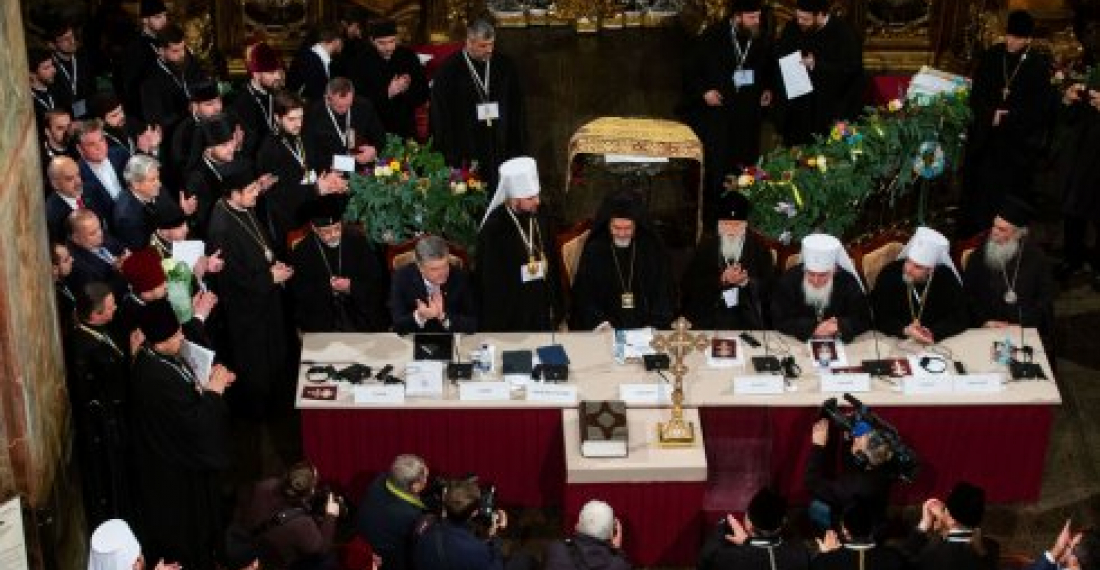After years of struggle, Ukraine has a new Church that is not subject to the authority of Moscow. At a unification council meeting in St Sophia's Cathedral in Kiev, also attended by the country's president, Petro Poroshenko, it was announced that the final process for unifiying different groups into a single Church independent from the Russian Orthodox Church had been agreed, and that a head for the new Church has also been selected. He is Metropolitan Epiphany of Pereyaslav and Belotserkovsk, who had earlier served as a bishop of the Kiev Patriarchate.
Speaking to crowds outside the Cathedral after the end of the Council deleberations, Poroshenko recalled the words of Ukrainian poet Taras Shevchenko, saying: "As Taras Shevchenko once said Ukraine will no longer be drinking Moscow's poison from Moscow's cup." Poroshenko told the crowd: "What is this church? This is a church without Putin. What is this church? This church is without Kirill. What is this church? This is a church without prayers for the Russian authorities and Russian troops, because they kill Ukrainians. But this is a church with God and Ukraine!"
The meeting of the Unification Council was held under the auspices of the Ecumenical Patriarchate of Constantinople, considered as the first among equals in the Orthodox hierarchy. The council was expected to consider two main issues, namely the new church's charter and the election of its head.
The meeting of the Unification Council was attended by the Ukrainian Orthodox Church of Kiev Patriarchate and the Ukrainian Autocephalous Church.
The Ukrainian Orthodox Church affiliated to the Moscow Patriarchate turned down the invitation for the Council, saying that it was illegitimate. On December 7, the Ukrainian Orthodox Church's Holy Synod said that the Ecumenical Patriarchate of Constantinople had no canonical right to convene any church meetings in Ukraine and that "neither the clergy nor the laity have been authorized to represent the Ukrainian Orthodox Church at that meeting."
On Saturday, however, two archbishops of the Ukrainian Orthodox Church attended the Council: Metropolitan Alexander (Drabinko) of Pereyaslav-Khmelnitsky and Vyshnevsky and Metropolitan Simeon of Vinnitsa and Barsky.
Ecumenical Patriarch Bartholomew of Constantinople, will hand over a "tomos" - a decree granting autocephaly, or independence - to the head of the new Ukrainian Church on 6 January.
source: commonspace.eu with agencies
photo: Meeting of the special "Unification Council" of Ukrainian Orthodox leaders in Kiev on 15 December 2018.







